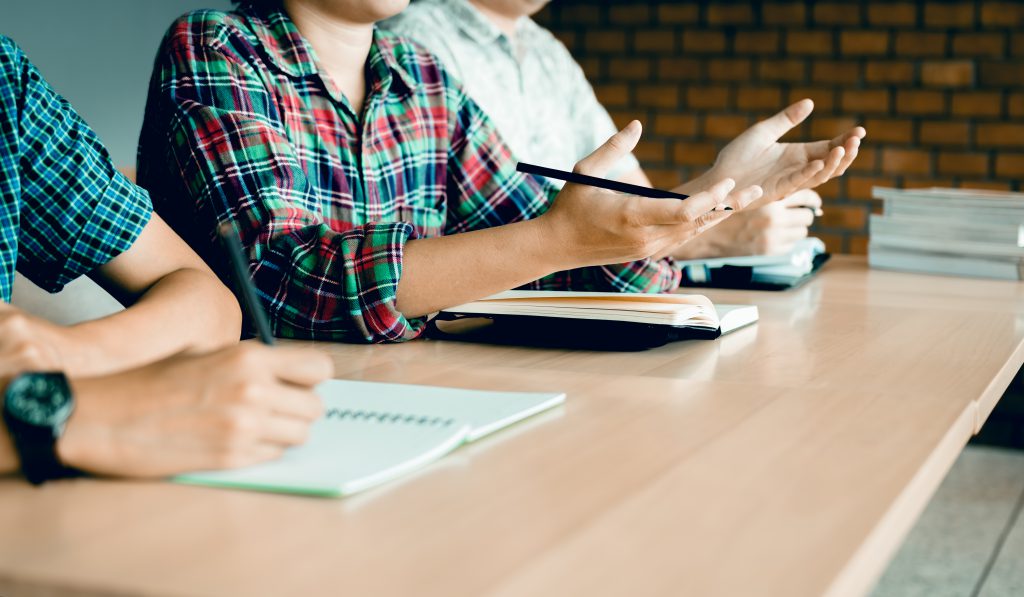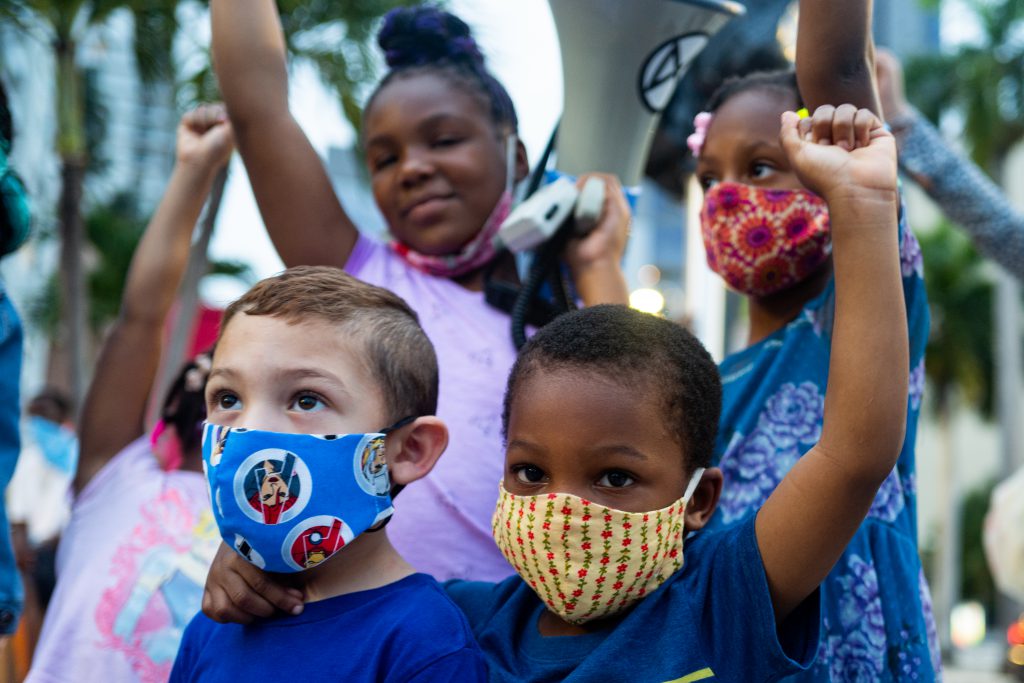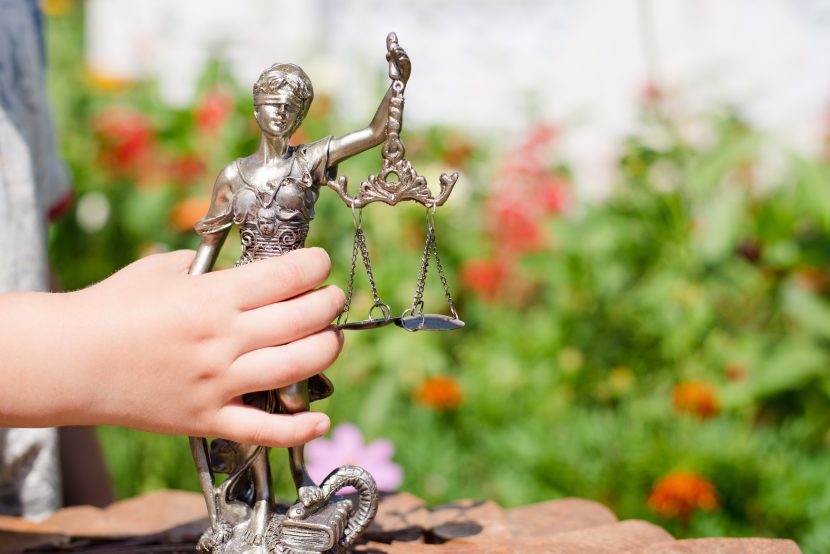On July 13, 2021 a parallel event was held at the High-Level Political Forum (HLPF) in New York, where access to justice was discussed with experts and children. Organized with the particular contribution of Child Rights Connect, this event was an opportunity to discuss some of the big challenges linked to children’s access to justice.
Mikiko Otani, Chair of the International Committee on the Rights of the Child, introduced the discussion facilitated by Geneviève Boutin. This followed the activists Yujin Kim and Do-Hyun Kim speaking about their contribution to environmental justice in South Korea. Finally, three speakers from different countries and organisations presented their activities in support of access to justice for children.
The child as a rights holder
Throughout this event, the importance of the fundamental right of access to justice was highlighted, because it is a real pillar of children’s rights with the right to an effective remedy. These rights are just as crucial for children as they are for adults. Indeed, while adults are already confronted with great challenges related to access to justice, children face a double problem.
They share the difficulties encountered by adults in addition to the obstacles of being a child in society, that is to say, being hugely economically dependent (which hinders access to justice), being treated like people who lack knowledge or capacity, and finally, dealing with a major lack of autonomy. Access to justice is therefore essential for any child, and the right to an effective remedy gives children the veritable quality of subjects of law, as holders and owners of rights, beyond parental rights.
Access to justice beyond the procedural level
In 2020, two young South Korean activists named Yujin Kim and Do-Hyun Kim lodged an appeal with the constitutional court of their country denouncing the inaction of their government on the climate issue. For many young people around the world, being part of political life is almost impossible or unimaginable. Thanks to cases like this one, new doors are opened for children to participate in judicial and political life.
A constitutional appeal for the climate is an opportunity for the teenagers to participate, and they consider this to be a uniquely empowering experience. Do-Hyun Kim describes her relationship with the law as quite vague before the complaint and her knowledge in this respect very abstract.
“Children need tools to protect themselves.”
– Do-Hyun Kim, young environmental activist in South Korea.
For some young people, the access to justice within their social customs is just as important as access to justice at the procedural level. Legal access for young people remains exceptional in many countries, not only due to the barrier of the language used by the justice system, but also because there are social pressures for children not to get involved with these aspects of societal life.

So, many young activists like Yujin Kim and Do-Hyun Kim are asking that the law be a tool for submitting claims. They ask this as holders of the above-mentioned rights, and no longer simply as subjects of law to be protected, since children also have the capacity to protect themselves.
Civil society in support of children’s rights
Across the globe, associations and other actors are fighting for better access to justice for children. During the HLPF event, three personalities discussed their commitment to the cause.
In Ecuador, Amparo Peñaherrera and the Federación de Mujeres de Sucumbios are fighting for an end to impunity for sexual violence against minors and young people, particularly young teenage girls. The federation fights against transgenerational violence, especially where sexual violence is concerned.
It also provides psychological support, refuge centres and legal support, which can continue throughout the judicial process. Often, these children, deprived of help as well as isolated from their families, have great difficulty accessing an effective remedy.
In Bulgaria, many challenges are being brought into the spotlight by the lawyer Aneta Genova. While access to justice is difficult for minors, there are additional aggravating factors. Children with disabilities are seriously excluded.
It being considered in their best interest for them not to attend trials, these children are sometimes not heard directly by the court. These cases are serious violations of the right to access to justice, and legal procedures must be adapted to the people concerned in order to create more favorable, fairer conditions.
In Greece, Theoni Koufonikolakou is responsible for the protection of children as an Ombudswoman. She recalls that the right to participation is hardly ever realized, and that the right to social representation is enshrined in the International Convention on the Rights of the Child (CRC). There are therefore still a lot of efforts to be made in all states. In her work, she is responsible for receiving complaints from children as well as ensuring the process runs smoothly.
In recent years, she has observed a lack of appropriate training for professionals within (private and public) institutions related to child protection. There are, for example, structural problems linked to the identification of violence against children. In refugee camps, her work requires more effort, since a relationship of trust needs to be created with the children and the language barrier can also prove to be a challenge.
The participants agree that there are still many challenges to overcome and that the solutions lie above all in the desire to include children more. However, there are also very positive developments both nationally and internationally, in particular regarding the ratification of the Optional Protocol to the Convention on the Rights of the Child on a Communications Procedure (OPCP). This gives children a right of appeal at the international level when national courts fail to correctly recognize a violation of their rights.

Humanium encourages and supports all initiatives aimed at improving the daily lives of children around the world. Access to justice and effective remedy are essential fundamental rights under the rule of law. As part of its advocacy activities, Humanium takes part in working groups on the implementation of the Sustainable Development Goals (SDG), especially with regard to SDG 16: “Peace, Justice and Strong Institutions”.
Written by Adrian Lakrichi
Translated by Clarisse Dehaeck
Proofread by Amanda Fearnley


